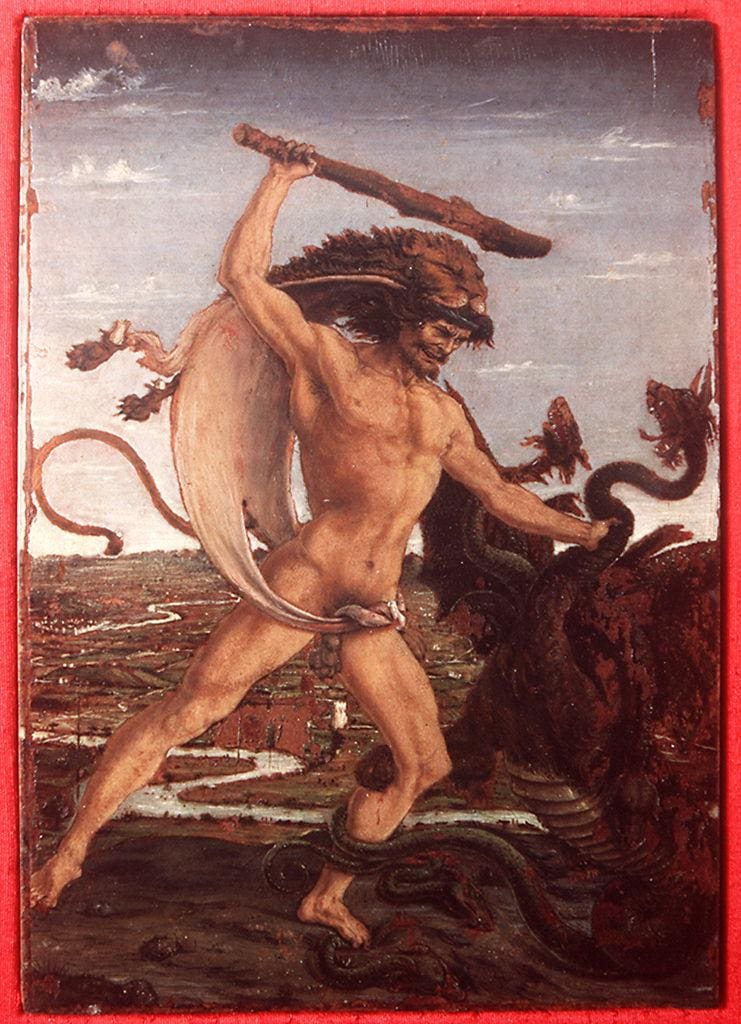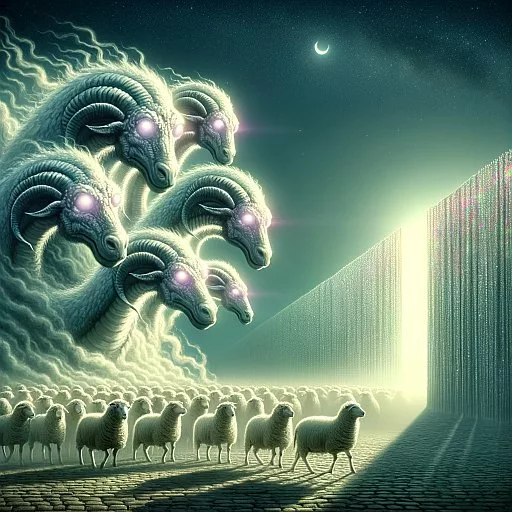” …The monster stood from its ten-foot height,
which is horrendous to look at. It looked like it was
constituted of all the foulest thoughts
And obscene conceived from the beginning of time…. “
(Alice A. Bailey, The Labors of Hercules).
I believe that the Hydra
Is the monster of farewells.
Severing a head,
shielding from the lightning poison,
Is only an illusion:
Another thousand stamps
Will portray those features.
Other words,
More songs:
sounds of an era thought to be remote,
and instead, they return
like flies
In the glow of a cold streetlight.
But Hydra has indeed
Only nine heads to be taken:
The first I severed in my fury.
The other eight,
Disoriented like sheep without a shepherd,
Will fall one by one,
because beyond
Is the barrier where my dreams
have planted
their latest
And more outrageous boldness.
Beyond.
The poison
smiles at me,
By now.
Deposited for legal protection with Patamu: certificate
Mythological-literary considerations
The Hydra of Lerna is a mythological monster with a fascinating backstory and significant connections to the Labors of Hercules. According to Greek mythology, this monstrous creature was said to be the offspring of Typhon and Echidna, making it sister to other fearsome creatures such as Cerberus and the Chimera.
What distinguishes Hydra from other creatures is its extraordinary regenerative abilities. It was believed to have multiple heads, with some accounts mentioning up to nine or even fifty. And each time one of its heads was severed, two new heads grew in its place. This made Hydra a formidable opponent, as Hercules discovered during his Second Fatigue.
As part of his Twelve Labors, Hercules killed the Hydra. Two more grew with each head he cut off, making defeat almost impossible. To counter this, Hercules enlisted the help of his nephew, Iolaus. Together, they devised a plan: while Hercules cut off heads, Iolaus would quickly cauterize neck stumps, preventing new ones from growing.

Eventually, Hercules killed the Hydra, but the battle was no easy feat. One of the Hydra’s heads was immortal, and Hercules had to bury it under a huge rock to prevent it from causing further damage.
The Hydra myth is a powerful reminder of the challenges and obstacles we face in life. Like Hercules, we must face and overcome our fears, adapting our strategies as we go along. The Hydra also symbolizes the idea that sometimes our problems seem to multiply when we try to face them head-on. Instead, we must approach them from different angles and find innovative solutions, just as Hercules did with the help of Iolaus.
If you like this poem, you can always donate to support my activity! One coffee is enough!


